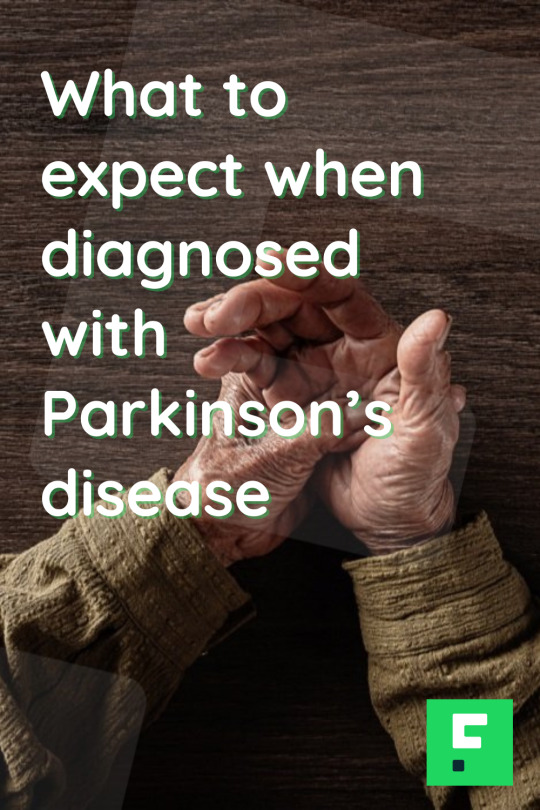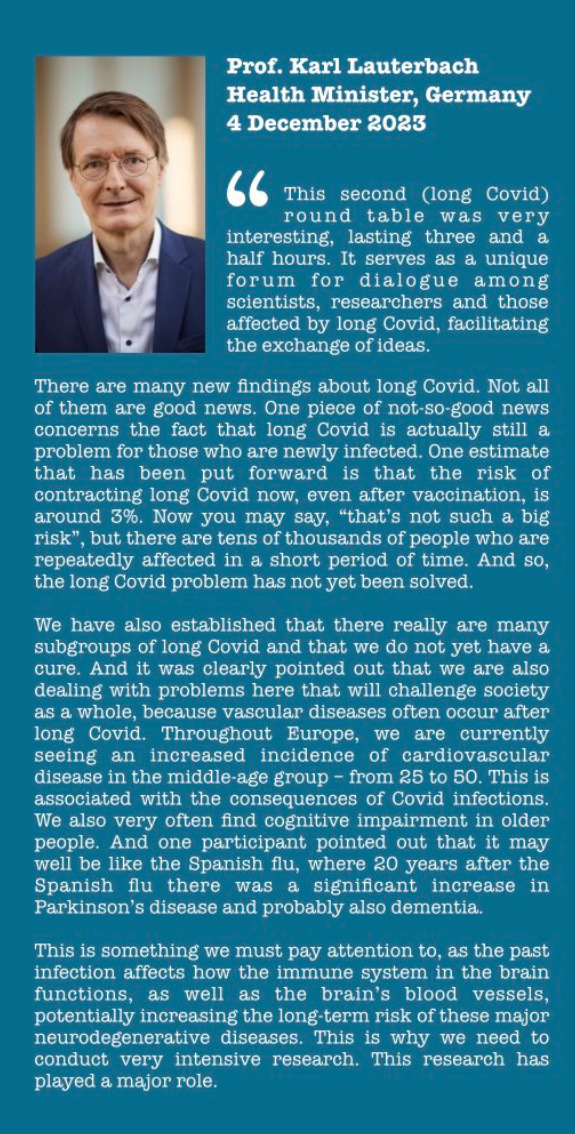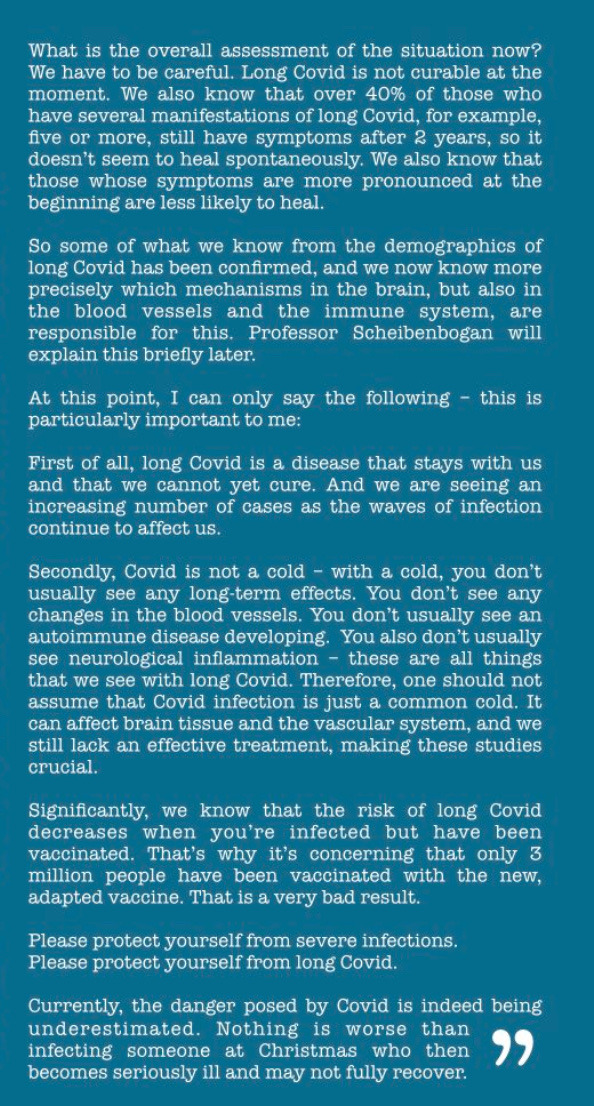#parkinson disease symptoms
Explore tagged Tumblr posts
Text
Understanding Parkinson Disease: Causes, Symptoms, and Treatment Options
I. Introduction Parkinson’s disease is a neurological disorder that affects millions of people worldwide. It is a progressive condition that typically develops in older adults, although it can occur in younger individuals as well. The disease is named after James Parkinson, a British physician who first described the condition in 1817. Parkinson’s disease is characterized by the gradual loss of…

View On WordPress
0 notes
Text

#parkinson disease symptoms#hospitals#treatment center#Best neurologist in Jaipur#Neurologist in Jaipur#Neurology doctor in jaipur
1 note
·
View note
Text
What to Expect When Diagnosed with Parkinson’s Disease

Parkinson’s disease occurs when cells in the brain that produce dopamine stop working or die, which affects coordination of body movements.
The early signs of Parkinson's disease can be subtle, including tremors, rigidity, slowness of movement, postural instability, and masked face.
Symptoms worsen over time, progressing through five stages. While there is currently no cure, treatment options include medication, physical therapy, occupational therapy, speech therapy, surgery, and lifestyle changes.
It's important to work closely with a healthcare professional to develop an individualized treatment plan that addresses specific symptoms and needs.
While Parkinson’s disease is a life-long condition, it usually takes time to get worse, and most people still have a normal life span with this condition.
3 notes
·
View notes
Text
Parkinson's Disease Symptoms: Early Detection and Management
Parkinson’s disease (PD) is a progressive neurological disorder that affects movement, balance, and coordination. While the disease worsens over time, early detection and proper management can significantly improve a patient's quality of life. Understanding the symptoms of Parkinson’s disease, particularly the early warning signs is essential for timely intervention and treatment.
The key symptoms of Parkinson’s disease, the importance of early detection, and effective management strategies to mitigate its impact on daily life.

Early Symptoms of Parkinson's Disease
1. Tremors
One of the hallmark early symptoms of Parkinson’s disease is a resting tremor. This involuntary shaking often starts in the hands or fingers, even when the muscles are relaxed. A telltale sign is the "pill-rolling" motion, where the thumb and forefinger rub together as if rolling a small object. Tremors may initially appear on one side of the body before spreading to the other.
2. Slowness of Movement (Bradykinesia)
Bradykinesia is characterized by slowness in movement, making everyday tasks like walking, dressing, or buttoning a shirt more difficult. This symptom can be frustrating for patients, as it often leads to a noticeable reduction in the ability to move quickly or easily.
3. Muscle Rigidity
Stiffness in the muscles is another early symptom. Rigidity can occur in the arms, legs, or neck, limiting range of motion and causing discomfort. It may also contribute to a stooped posture and reduced facial expressions, a condition known as hypomimia or "masked face."
4. Impaired Balance and Coordination
Patients with Parkinson’s disease often experience problems with balance and coordination, leading to frequent falls. This is particularly concerning for older adults, as falls can result in injuries and significantly impact mobility.
5. Changes in Speech
Speech changes are common in Parkinson’s disease. These may include softer speech, slurred words, or a monotone voice. Over time, patients may find it difficult to articulate their thoughts clearly, affecting both verbal communication and confidence in social situations.
Non-Motor Symptoms of Parkinson's Disease
While motor symptoms are the most recognizable signs of Parkinson's disease, non-motor symptoms can appear early in the disease's progression and greatly impact a patient's quality of life. These symptoms include:
1. Sleep Disturbances
Many individuals with Parkinson's disease experience trouble sleeping, including insomnia, vivid dreams, and restless leg syndrome. Sleep disturbances can exacerbate daytime fatigue, making it harder to function normally.
2. Cognitive Impairment
Cognitive changes, such as difficulty with memory, decision-making, or multitasking, are common in the later stages of the disease. However, mild cognitive decline can occur early and should be closely monitored.
3. Mood Disorders
Depression and anxiety are common in people with Parkinson’s disease. These mental health issues can sometimes precede the onset of motor symptoms, making them an important aspect of early detection.
4. Gastrointestinal Issues
Constipation and other digestive problems may also be early signs of Parkinson’s. The slowing down of the autonomic nervous system, which controls digestion, can lead to these uncomfortable symptoms.

Importance of Early Detection
Early detection of Parkinson’s disease is crucial for better management and treatment. Identifying symptoms in the early stages allows healthcare professionals to develop a personalized care plan that may slow disease progression and improve overall quality of life. By recognizing the early signs, patients can begin treatments such as medication, physical therapy, or lifestyle changes that can alleviate symptoms.
Diagnosing Parkinson’s Disease
Diagnosing Parkinson’s disease can be challenging, as there is no specific test for the condition. Doctors typically rely on a combination of a neurological exam, medical history, and a patient’s reported symptoms. In some cases, imaging tests, such as MRI or PET scans, may be used to rule out other conditions.
Management of Parkinson’s Disease Symptoms
1. Medications
Medications are the primary method for managing Parkinson’s disease symptoms. Drugs such as Levodopa and dopamine agonists help increase dopamine levels in the brain, improving motor symptoms. However, medications must be carefully adjusted over time, as their effectiveness may diminish, and side effects such as dyskinesia (involuntary movements) can occur.
2. Physical Therapy
Physical therapy is highly beneficial for Parkinson’s patients, particularly for managing movement-related symptoms. Exercises that improve strength, flexibility, and balance can help reduce stiffness, enhance mobility, and prevent falls. Specialized therapies, such as speech therapy and occupational therapy, are also valuable in maintaining communication skills and daily functioning.
3. Lifestyle Changes
Incorporating lifestyle changes can make a significant difference in managing Parkinson’s symptoms. Regular exercise, a balanced diet, and stress-reducing activities such as yoga or meditation can all contribute to improved well-being. Staying socially active and mentally engaged is equally important, as it helps maintain cognitive function and emotional health.
4. Support Systems
Living with Parkinson’s disease can be challenging, not only for patients but also for their families. Building a strong support network that includes family, friends, healthcare professionals, and support groups is essential for maintaining mental and emotional health throughout the journey.
Advanced Treatment Options
In cases where medications become less effective, or symptoms progress rapidly, advanced treatments such as Deep Brain Stimulation (DBS) may be considered. DBS is a surgical procedure that involves implanting electrodes in specific areas of the brain to regulate abnormal neural activity. This therapy can help reduce tremors and improve movement but is typically reserved for patients with more advanced stages of Parkinson’s disease.
Conclusion
Parkinson’s disease can be a life-altering diagnosis, but with early detection and proper management, individuals can live fuller, more independent lives. Recognizing the early symptoms, particularly tremors, slowness of movement, and muscle rigidity, allows patients to seek medical advice and start appropriate treatments. Effective management strategies, such as medication, physical therapy, and lifestyle adjustments, can alleviate symptoms and help patients maintain their quality of life.
If you or a loved one are experiencing any of the early signs of Parkinson’s disease, seeking support from healthcare professionals is vital. At Speech Up, we offer personalized speech therapy services that can assist with the communication challenges often associated with Parkinson’s disease. Join us today and get the expert care and support you need to manage your symptoms and improve your quality of life.
1 note
·
View note
Text
Decoding Hand Tremors: Causes, Symptoms, and Treatment Explained
Explore the mystery of shaky hands with insights on causes, symptoms, and treatments. Online doctor advice available. Discover relief from hand tremors now.
#Hand tremors#Essential tremor#Parkinson's disease#Tremor disorders#Neurological conditions#Hand tremor symptoms#Hand tremor treatment#online doctor advice .
0 notes
Text
Pass the Tylenol, Please
Happy February! Do you ever feel like your body is a barometer or a weathervane? Can you feel the changing weather before it actually changes? We were in Chicago last weekend where the weather was rainy and in the 30’s most of the time. I definitely felt the rain coming before it actually arrived. Back home in LA, I was fine until last night as a front moved in with heavy rain all night until…

View On WordPress
#Kristine Meldrum#Living Well#living with Parkinson&039;s Disease#Parkinson&039;s and weather#Parkinson&039;s: How to Reduce Symptoms Through Exercise
0 notes
Text

Cat in the Hat:
"The German Health Minister gave an important update on the Covid situation yesterday.
I’ve written up the section of his speech from the video below for easy reading.
It’s immensely refreshing to see a government minister warning of the harms of Covid in such a transparent way."
https://x.com/_catinthehat/status/1732092683508678954


Prof. Karl Lauterbach
Health Minister, Germany
4 December 2023
"This second (long Covid) round table was very interesting, lasting three and a half hours. It serves as a unique forum for dialogue among scientists, researchers and those affected by long Covid, facilitating the exchange of ideas.
There are many new findings about long Covid. Not all of them are good news. One piece of not-so-good news concerns the fact that long Covid is actually still a problem for those who are newly infected. One estimate that has been put forward is that the risk of contracting long Covid now, even after vaccination, is around 3%. Now you may say, "that's not such a big risk" , but there are tens of thousands of people who are repeatedly affected in a short period of time. And so, the long Covid problem has not yet been solved.
We have also established that there really are many subgroups of long Covid and that we do not yet have a cure. And it was clearly pointed out that we are also dealing with problems here that will challenge society as a whole, because vascular diseases often occur after long Covid. Throughout Europe, we are currently seeing an increased incidence of cardiovascular disease in the middle-age group - from 25 to 50. This is associated with the consequences of Covid infections.
We also very often find cognitive impairment in older people. And one participant pointed out that it may well be like the Spanish flu, where 20 years after the Spanish flu there was a significant increase in Parkinson's disease and probably also dementia.
This is something we must pay attention to, as the past infection afiects how the immune system in the brain functions, as well as the brain's blood vessels, potentially increasing the long-term risk of these major neurodegenerative diseases. This is why we need to conduct very intensive research. This research has played a major role.
What is the overall assessment of the situation now?
We have to be careful. Long Covid is not curable at the moment. We also know that over 40% of those who have several manifestations of long Covid, for example, five or more, still have symptoms after 2 years, so it doesn't seem to heal spontaneously. We also know that those whose symptoms are more pronounced at the beginning are less likely to heal.
So some of what we know from the demographics of long Covid has been confirmed, and we now know more precisely which mechanisms in the brain, but also in the blood vessels and the immune system, are responsible for this. Professor Scheibenbogan will explain this briefly later.
At this point, I can only say the following - this is particularly important to me:
First of all, long Covid is a disease that stays with us and that we cannot yet cure. And we are seeing an increasing number of cases as the waves of infection continue to affect us.
Secondly, Covid is not a cold - with a cold, you don't usually see any long-term effects. You don't see any changes in the blood vessels. You don't usually see an autoimmune disease developing. You also don't usually see neurological inflammation - these are all things that we see with long Covid. Therefore, one should not assume that Covid infection is just a common cold. It can affect brain tissue and the vascular system, and we still lack an effective treatment, making these studies crucial.
Significantly, we know that the risk of long Covid decreases when you're infected but have been vaccinated. That's why it's concerning that only 3 million people have been vaccinated with the new, adapted vaccine. That is a very bad result.
Please protect yourself from severe infections.
Please protect yourself from long Covid.
Currently, the danger posed by Covid is indeed being underestimated. Nothing is worse than infecting someone at Christmas who then becomes seriously ill and may not fully recover."
Alt text is included in all images of this post.
#covid#not a cold#please wear a mask#pandemic#pandemic not over#long covid#Karl Lauterbach#Germany#German health minister
10K notes
·
View notes
Photo

At Rune Labs, we are always looking for ways to improve the lives of those affected by Parkinson's Disease. Our collaboration with Aspen Neuroscience is a major step in that direction, as we will be able to characterize symptom activity in PD more deeply than ever before. This information will help us to identify and recruit trial participants for our upcoming screening study.
1 note
·
View note
Text
#Parkinson’s treatment center in Patna#Best Psychiatrist in Patna#Bihar#foods to avoid with Parkinson’s disease#Parkinson cure found#Parkinson’s disease symptoms#Parkinson’s disease stages#What is the best treatment for Parkinson’s disease#Parkinson’s disease self-care
0 notes
Text

Recent Advances in Treatment & Management of Parkinson’s Disease 2023 | Medanta
0 notes
Text
From the earliest days of the COVID-19 pandemic, scientists have raised concerns about the potential for long-term health problems linked to SARS-CoV-2 and warned repeated infections are likely to increase the risk. An association between COVID and cardiovascular disease emerged quickly. And now — almost exactly four years since the first case was discovered in Wuhan — a growing body of scientific research is cautiously linking the inflammation caused by a COVID infection to diseases like Alzheimer's and Parkinson's as well as autoimmune conditions from bowel disease to rheumatoid arthritis. The virus has even been suggested to impact some pregnant women, associated with double the risk of premature delivery. As the eighth COVID wave hits Australia, experts are taking notice.
...
When the first wave of COVID patients began reporting loss of smell and taste, Barnham's radar went up. "Any time you see olfactory impairment it tells you that there's going to be neurological impact," he says. "Loss of smell is a cardinal, pre-clinical symptom of Parkinson's disease and it's been implicated in Alzheimer's disease as well." The fact that COVID patients reported loss of smell not only during the active phase of the disease, but as a persistent symptom, suggested to Barnham that longer-term health consequences were likely. Loss of smell is associated with loss of brain volume.
3K notes
·
View notes
Text
anyway um. shoutout to disabled people who move their bodies in ways that are considered "wrong" or "abnormal" regardless of the cause or how it's classified. and this isn't limited to just ambulation.
paralysis. dystonia. gait abnormalities. people with muscle weakness and/or atrophy. people with brain damage. rotational differences. clubfoot. knocked knees. other limb and bodily differences. functional deformities that affect movement. tissue contracture. muscular dystrophies. spasticity. impaired proprioception, balance, and/or coordination. chronic pain. spinal disorders. dyspraxia/DCD. apraxia. ataxia. dystaxia. tourette's syndrome and other tic disorders. conversion symptoms. tremors. neurodegenerative disease. degenerative bone diseases. joint instability. myoclonus. parkinsonism. tardive dyskenisia. various other neurological problems.
...and the list goes on.
personally i feel a bit surreal when my body not doesn't always move in the ways i want it to because that straightforward connection that's there for abled people has been disrupted in a myriad of ways. but no one is gross, ugly, or scary for being unable to move their body in ways that society considers "normal" and "healthy." no one deserves to be gawked/stared at or treated like they're subhuman because of the way their body moves.
it's okay for us to exist.
#cripple punk#cripplepunk#cpunk#neurodivergence#disabled positivity#j#idk a better term for 'functional deformity' bc afaik deformity is a term w/ negative associations#affirmations
6K notes
·
View notes
Link

Parkinson's disease is a neurodegenerative condition characterized by motor deficits brought on by Lewy bodies and dopaminergic neuron loss in the substantia nigra. It mainly affects the upper and lower extremities, including facial muscles of the patient. Since Parkinson's disease has become more prevalent in recent years, more research is needed to create cutting-edge diagnostic procedures and treatment options to manage the condition. Central BioHub is a leading online human biospecimen marketplace offering thousands parakinson's disease biological samples immediately available for online procurement.Hurry up, order online.
0 notes
Text

The last known photograph of Robin Williams, taken just the day before he died.
He passed away on the 11th of August, 2014, at the age of 63. He was found dead in his home in Paradise Cay, California. The cause of death was determined to be suicide by hanging.
In the months leading up to his death, Williams had been struggling with severe depression and anxiety. After his death, it was revealed that he had been diagnosed with early stages of Parkinson's disease, which he had not yet disclosed to the public.
Later, an autopsy report indicated that Williams had Lewy body dementia, a neurodegenerative disorder that can cause severe cognitive and behavioral changes, along with physical symptoms similar to Parkinson's disease.
Lewy body dementia is often misdiagnosed, and it is believed that the combination of his mental health struggles and the debilitating effects of this disorder contributed to his tragic decision to end his life.
Robin Williams left behind a legacy of remarkable performances in film, television and stand up comedy. Generations of children grew up with him on the television, and he touched the world with his humor, warmth and talent.
His death was a profound loss to the entertainment industry and to the many people who admired and loved him.
295 notes
·
View notes
Note
Thank you so much for your blog! It's so neatly organized, it's lovely to read. It takes a lot of commitment to do detail every post and still constantly update, and I'm very grateful for you <3
I was wondering if you could write tips+prompts for a paranoid character?
Thank you again 😺
Thank you for the kind words!! That means a lot :)
How to Write a Paranoid Character
-> sources: mind.org , betterhealth.vic.gov
Paranoia is the irrational and persistent feeling that people are "out to get you."
Things that Make Paranoia More Likely:
Having confusing or unsettling experiences or feelings that you can't easily explain.
If you are anxious or worried a lot or have low self-esteem and expect others to criticize or reject you.
If you tend to come to conclusions quickly, believe things very strongly, and don't easily change your mind.
If you are isolated.
If you have experienced trauma in the past.
Things that may Contribute to Paranoid Thoughts:
Life experiences. You are more likely to experience paranoid thoughts when you are in vulnerable, isolated or stressful situations that could lead to you feeling negative about yourself.
Experiences in your childhood may lead you to believe that the world is unsafe or make you mistrustful and suspicious of others. These experiences may also affect your self-esteem and the way you think as an adult.
If you experience anxiety, depression, or low self-esteem, you may be more likely to experience paranoid thoughts.
Paranoia is sometimes a symptom of certain physical illnesses such as Huntington's disease, Parkinson's disease, strokes, Alzheimer's disease and other forms of dementia. Hearing loss can also trigger paranoid thoughts in some people.
Lack of sleep can trigger feelings of insecurity and even unsettling feelings and hallucinations. Fears and worries may develop late at night.
Recreational drugs may trigger paranoia, such as cocaine, cannabis, alcohol, ecstasy, LSD, and amphetamines. This may happen particularly if you're already feeling low, anxious or experiencing other mental health problems.
Research has suggested that genes may affect whether you are more likely to develop paranoia.
Symptoms of Paranoia:
being easily offended
finding it difficult to trust others
not coping with any type of criticism
assigning harmful meanings to other people's remarks
being always on the defensive
being hostile, aggressive, and argumentative
not being able to compromise
finding it difficult (or impossible) to "forgive and forget"
assuming that people are talking ill of them behind their back
being overly suspicious
not being able to confide in anyone
finding relationships difficult
considering the world to be a place of constant threat
feeling persecuted by the world at large
believing in unfounded conspiracy theories
Writing Prompts for a Paranoid Person
-> feel free to edit and adjust pronouns as you see fit.
Everyone was against him. No one liked to see him succeed and so they were doing everything in their power to stop him.
People were talking about her behind her back. They would whisper as she walked by, and their laughter would echo in her ears as she got further from them.
"You never believe me!" They wailed, pointing an accusing finger at their friend. "You wouldn't get it! You don't know what it's like to be hated by everyone!"
He laid in bed, staring at the ceiling and wide awake. It was a nightly routine, at this point. He could never bring himself to close his eyes. There were too many things going on his head, too many things that only made him dread when morning came.
Everything was about to go so wrong so fast, and there was nothing she could do to stop it. The impending doom beat down on her shoulders, reminding her that she was not okay. She was not safe.
They couldn't stop fidgeting with their hands. It used to offer some form of comfort, but not anymore. How could it when the whole world is against you?
They were looking at him. They were watching his every move. He was being tracked. Studied. Something was going to happen. Something bad. Something he wasn't prepared for. What could he do to be prepared?
"You think I'm crazy, but I'm not! You'll see."
If you like what I do and want to support me, please consider buying me a coffee! I also offer editing services and other writing advice on my Ko-fi! Become a member to receive exclusive content, early access, and prioritized writing prompt requests.
#writing prompts#dialogue prompt#creative writing#writeblr#prompt list#ask box prompts#paranoia#how to write a paranoid character#how to write#writing tip#writing characters#writing help#writing advice
558 notes
·
View notes
Text
Researchers have identified a series of blood markers that betray the presence of Parkinson's disease up to seven years before most symptoms present. If findings from this small study can be replicated in larger populations, a simple blood test could be developed to identify those at risk. With around 10 million people impacted by Parkinson's globally, there is an urgent need to develop better treatments and preventative strategies. One of the reasons this has proved challenging is our inability to identify people at risk of Parkinson's early enough to trial mitigation strategies. So, University College London biochemist Jenny Hällqvist and colleagues used machine learning models to find eight proteins in our blood that change as Parkinson's disease progresses.
Continue Reading.
258 notes
·
View notes